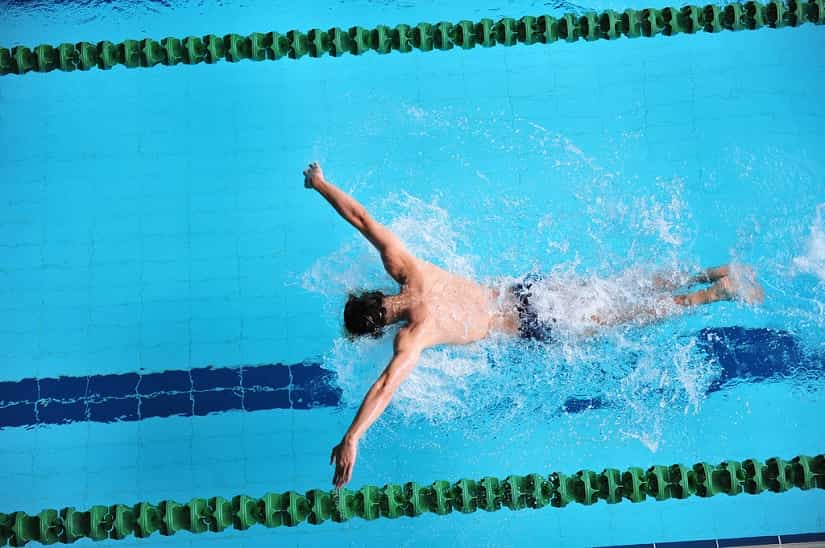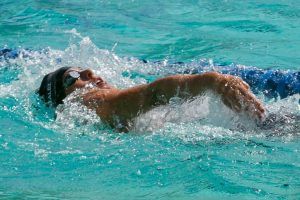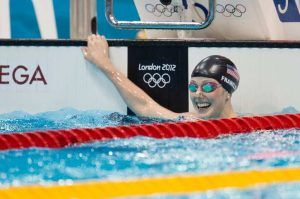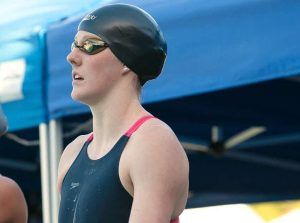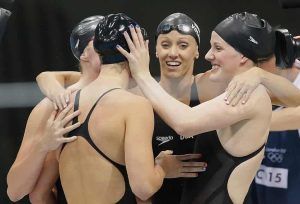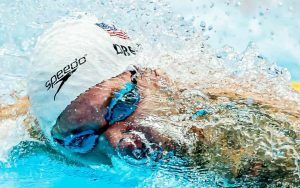The black line. The smell of chlorine. The disappointment of failure and pure elation in success.
There are common experiences we all share in the pool, and how we experience some of the biggies varies with each individual. The road-posts and milestones over the career of a competitive swimmer have a profound impact on us long after that final race.
Here are just some of the moments that will shape your swimming career and the life you live outside of the pool afterwards:
1. The first time you really see your hard work pay off.
You took the leap. You put faith in your coach’s workouts. You decide to embrace the process.
You showed up to the pool—early, usually—did each swim practice as it was laid out, stayed afterwards to do some extra stretching and core work, and made strides in living the life of a 24-hour athlete.
By the time it came to stepping up on the block, you felt confident in your preparation. You’d done just about all you could to be ready, and the race that cascaded forth reflected your time, energy and effort.
When you slammed into the wall, looked over and saw that killer new personal best time—a time you thought was possible but still can’t quite wrap your head around—you were flooded with a sense of vindication and satisfaction.
Your hard work had paid off.
That moment set the bar moving forward, giving you the trust in the process of improving to commit to bigger and badder goals.
2. When you royally screw-up on the big stage.
If there is anything that is more frustrating than working hard and not seeing the results of your training (although perhaps that is not as frustrating as the perpetual battle to get chlorine out of your hair), I don’t know what it is.
The misery of choking. A disqualification. Missing your event. The worst time to suffer a brain fart of epic proportions is at the year-end meet you’ve worked so hard towards.
But it’s going to happen. Even to one of the top swimmers on the planet. Multiple times.
Kevin Cordes, one of the fastest breaststrokers in the world, got his relay squad disqualified at the FINA World Championships in 2013 when he took off 0.04 of a second early on his takeover, nullifying a gold medal-winning performance for the USA.
At the Pan Pacific championships the following year his swim goggles slipped down his face on the start of the 100m breaststroke—when he pulled his goggles off on the turn he was again disqualified. You wanna talk about bad luck.
Yes, the screw-up will leave you feeling sheepish. Frustrated. Stupid, even. And it may even be embarrassing, and you may even feel like you let down your teammates, family and coach.
But like any other kind of setback and loss, it’s a moment to grieve from for a brief amount of time, and then to learn from.
3. Your first time training with truly elite swimmers.
Swimming with your pals every day puts us in a sort of bubble where we don’t experience the epic speed that swimmers we only read about online possess.
Maybe you get invited to a national select camp. Or you share a lane with an Olympian during a meet warm-up. Or perhaps you make the move to a bigger club from your small pond-club.
Those first few workouts where you are getting dusted can be depressing and demotivating. Suddenly you doubt yourself, your abilities, and wonder what the point even is to showing up to practice.
I know this feeling well: in 1999, while Grant Hackett of Australia was at the peak of his swimming prowess, he came and swam some workouts next to our group. Watching him swim 200m freestyle repeats averaging around 1:50s was partly inspiring, but overwhelmingly deflating at the same time.
You can use these swimmers as motivation.
Don’t worry about comparing yourself to them, but do give everything you have to keep up with them. Believe it or not, being the slowest swimmer in the lane is actually an advantage—if you treat it as one.
4. Your first big championship meet.
There are usually a lot of firsts with your rookie championship meet. For some of us, it’s the first time we take extended travel for a swim meet. For others, it’s the first time competing against some of the names you’ve only read about.
Whatever the case, that first big meet opens your eyes. The production. The loud music during warm-up. The people in the stands. The fast swimming.
How you perform is one thing, but it’s a big moment for the fact that you now know you belong on the big stage.
5. When you hang up the racing suit.
It’s a bittersweet moment for most of us. Of course, there are those who leave the sport on bad terms: injury forces us out, we have a huge blow-up with our coach, or we simply get burned-out from all the training.
When we do decide to leave the sport there is the happy realization that you won’t have to get up in the pitch black of the early morning to go to the pool at 5am. Those test sets are long gone. And so is the missed social outings and occasions.
But let’s be honest: you will miss the chlorine. Even though you spend countless hours in the shower with your swimmers shampoo trying to rid yourself of it. You’ll miss the training, even though there were moments where you hated it. And you will miss your friends.
Long after you hang up the racing suit, the pool will continue calling to you. The water will still be there, waiting patiently, without judgement.
More Stuff Like This:
12 Things You Learn Becoming a Swim Parent. The swimmer lifestyle is unique, and so it is for their parents as well.
7 Things Swimming Will Teach You About Life. Swimming does more than just give us washboard abs. It is also a proving ground for the rest of our life.

